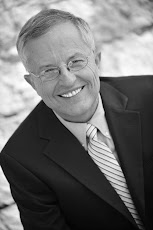Monday, February 11, 2013
Pope Benedict XVI's most enduring legacy: his well-timed decision to resign
Pope Benedict XVI's historic announcement today that he will step down from the papacy on February 28 not only was the right decision but also may be his most enduring legacy.
With one announcement and the stroke of his pen, he has upended centuries of unnecessary tradition that needed to be brought to an end. Never again will someone be able to say, "But popes aren't supposed to resign or retire." He has! Others now can follow in his shoes.
His actions speak louder than his words.
For those of us who have watched as popes have aged and lingered for years on death's doorstep and become unable to make even the most simple of decisions, Benedict's action is a breath of fresh air. Now we won't have to endure months on end of unnecessary news coverage about every twist and turn of his failing health. Now he can age, decline, and die much more out of the limelight than had this 85-year-old man remained pope until his death.
He's also sending an important message to any religious leader who sees himself or herself as indispensable. No one church or religious figure holds the fate of the church or religion in the palms of his or her hands. God alone is sovereign. We are all mere mortals--every one of us.
Retirement is a modern phenomenon brought about by better health care and living conditions that have led to longer lifespans. That doesn't mean that one drinks of the "fountain of youth" forever. Slowing down and losing certain abilities is a natural part of the aging process. I've known a goodly number of people who have made it far longer than Benedict and some even to the century mark, plus or minus a few years. Some aged more gracefully than others and were in better shape toward the end of their lives than others, but none was as he or she was in the prime of life and able to function as the person once was.
Of course, I will miss Benedict. Since his early days as a cardinal in Germany I've kept my eye on him. He was and still is a fascinating person. I've enjoyed reading his books, reading about him, watching him on TV, and as a newspaper reporter writing about him myself. During the 25th anniversary celebration of Vatican Council II, I was in Rome for nearly a month as I covered that important event for the Houston Chronicle. Benedict, then Cardinal Ratzinger, was an important player in that meeting.
On several occasions I dropped by Cardinal Ratzinger's office at the Vatican and hoped to spend a few minutes with him, but I never was able to sit down privately face-to-face with him. He was always "too busy", but that didn't dampen my curiosity about the man I believed was destined to make a major impact on modern Roman Catholic history.
When early this morning I first read the announcement that Benedict would resign, through my mind flashed images of what life would be like if I were still working at the Houston Chronicle and hearing news editor Dan Cobb's voice on the phone as he rousted me from sleep and barked, "Lou, the pope has resigned. Get to the office as fast as you can and write an analysis for the 10 a.m. deadline."
Benedict's legacy as the successor to the immensely popular Pope John Paul II has included many good and important decisions for the world's Roman Catholics. He managed the role with dignity and integrity. He's built bridges to the Anglicans and other Christians as well as improved relations with Jews, Muslims, and members of other world religions.
But for all of us, he has now left his indelible mark. In the words of Proverbs 3:1 (NIV), There is a time for everything and a season for every activity under the heaven . . . including a time to pass the mantle to others.
Subscribe to:
Post Comments (Atom)






No comments:
Post a Comment